|
by Glenn C. Koenig, webmaster at Town Wide Mall === Note: This story includes a fundraising appeal. ===
When it was published, it turned out to be a big hit! But by now, after eight years, all the copies have been handed out. Also, although you can download a PDF version of it today, it’s badly in need of updating. At the time it was printed, the Assabet River Rail Trail was still an abandoned railroad track. What is now Sanctuary (at 82 Main St.) was still The Union Congregational Church, not yet put up for sale. There have been numerous other changes as well.
I agreed to do the fundraising and coordination without any financial compensation for myself. But applying for a grant means submitting an application and waiting for approval before going ahead. There's also a real risk that not all the money requested is granted, so we'd have to seek other funds to make up the difference. In addition, if we apply, that means less money may be available for grants to other individual artists, struggling to make ends meet. The MCC has allocated $8,300 for Maynard, for this coming year. I don't know the allocation for last year but there were requests for $11,266 from applications submitted by others. I suspect that the total amount of applications will exceed the allocation again this year. The details are available on the MCC web site for Maynard: https://massculturalcouncil.org/local-council/maynard/ So, instead of applying for a grant, here's my proposal: Let's see if we can raise the necessary funds right here in Maynard! That way, we don’t risk a partial grant approval, we leave more grant funds available for other projects, and we can get started right away. So here is my ask: The Appeal Please donate whatever you can. Even small amounts will help. Use the Donate button on the About Page here on this web site (or use the button at the bottom of this or other news story in this news feed), but please be sure to put the words “FIELD GUIDE” in the comments on the PayPal screen before you submit your donation! That way, I can keep the funds for this project separate from general donations for Town Wide Mall. Also, please make sure to indicate if you would like your NAME PUBLISHED as a donor for this effort. If I don't have your explicit permission, I will consider you to be an anonymous donor. Anyone can donate, even a business, but as I am not a non-profit organization, donations are not tax deductible. If, for any reason, we raise more than is needed, I will hold the extra for printing more copies in case we run out. If that is not needed, I’ll donate the remainder to the Maynard Food Pantry. I plan to post updates on how many donations have been received, the total amount received, and how we’re doing toward getting this printed and available, in subsequent posts, here on this news feed. Comment & Notes From what I’m told, when the Guide was first published (before I moved to Maynard), it was popular with real estate agents who took handfuls of copies and handed them out to prospective home buyers looking to move to Maynard. This time around, my plan was to visit as many of them as I could, in person, to ask for a donation. However, as I’ve been struggling to throw off what seems like the “forever summer head cold” these past few months, I have not gone forward with those personal visits, partly out of concern that I not spread this thing around (although a doctor told me that I’m probably not contagious). So, my message to everyone in real estate in Maynard is this: If you could see fit to make a reasonable donation to this effort, I would very much appreciate it and I’m sure the residents of Maynard will thank you for helping out. Oh, and one more thing. Why would we go to the trouble of printing something when almost everyone travels with a cell phone in their pocket these days? Here's one reason: Perhaps walking the natural areas in Maynard might be nice without having to look at a screen! Just a piece of paper in your pocket with a map that’s good enough to guide you, and a page bigger than any cell phone screen when you unfold it. And for people considering Maynard as a nice place to live, it’s something to review while relaxing at home, instead of having to call it up on a computer or tablet. Thank you all, in advance, for helping with this project.
2 Comments
by Glenn C. Koenig, webmaster at Town Wide Mall
The official results of the votes on all nine articles are posted on the Town Clerk’s web page as a PDF document: https://tinyurl.com/TWMLink04 When I talked to Town Clerk Dianne M. Reardon this afternoon, she reported that 786 voters and 32 guests were recorded as having entered the meeting, making it one of the most well attended in many years. The main reason for the large attendance was Article 3, a “Borrowing Authorization Through Debt Exclusion.” This is the first of two major steps to finance the building of a new Green Meadow Elementary School. As this project has seen wide publicity throughout the year leading up to the meeting, there was great interest among the public to participate in the vote on this article.
Once the meeting got underway, just before 8 PM, the first two articles were discussed and voted on by around 8:20. Then it was time for Article 3. The amount to be approved by the meeting listed in the article, $83,600,000, is the largest sum for a building project in the town’s history, so it's easy to see why there was so much interest in attending the meeting.
The comments went on for just under an hour. In general, most people spoke in favor of a Yes vote. More than one person thanked the committee for all its hard work. One person pointed out that a new building would better retain teachers and students, a current issue in schools in general. Others stressed the availability of funding from the MSBA, which the town would stand to lose if the project was postponed or reverted to a renovation of the current building. Others reiterated various problems with the current building, including remarks from one person who works there on staff. A few others were more critical. One pointed out that when interest was added to pay back the $54 million in bonds during the 30 years, the total payback would amount to nearly $100 million. He also asked why the meeting wasn't offered more options, besides the final proposal from the GMSBC. Another person objected to a comparison, made earlier, with building projects in Belmont and Watertown, explaining that Maynard had a smaller population and significantly lower average income than in either of those towns. She said the building was "just too expensive" and suggested that perhaps $50 million would be more appropriate. After all the comments concluded it seemed clear that the measure would likely pass, which it did. Because the vote is a prerequisite to an increase in property taxes beyond the normal 2.5% limit, a 2/3 majority was needed, but the final tally, 695 Yes, 67 No, was well over the necessary margin. The term "... Through Debt Exclusion" in the article's title pertains to the fact that the taking on of this debt is "excluded" from (is allowed to exceed) the normal 2.5 % annual tax increase amount. Property tax increases for property owners would be between $500 and $1000 per year, approximately, depending on the town's official valuation of each individual property, if the measure is voted favorably in November's general election. Of the remaining articles, most were passed within a few minutes, but two received more discussion. Article 4 was submitted by the Maynard Senior Center Focus Group, who asked for money to enter into a limited term lease in order to move the Senior Center from it's current cramped quarters into leased space for the next five years, until a more permanent location could be found. However, the article as submitted had two technical errors, so the Finance Committee did not recommend passage (see story: "An Uphill Struggle" in the news feed, here on Town Wide Mall). The vote was in favor, however, as a show of support for the Senior Center to be provided with new quarters, even though the money could not be appropriated at this time. Articles 6 and 7 were related to the acceptance of three roads in town that are currently private ways, Fletcher Street, Heights Terrace, and Allan Drive. "Acceptance" means that the town would assume ownership of the roads (whereas they are currently owned jointly by the property owners that border them) in order to bring them up to public road standards and maintain them in the future. A number of residents spoke of the deteriorated state of each of the three, and how gaps in the pavement are a risk to pedestrians, bicycles, and vehicles, and how it's difficult or impossible to operate snow plows, as well as safe travel for emergency vehicles. Responding to a question, Public Works Director Justin DeMarco stated that once the roads were accepted, they would join the list of all public roads in town, currently being evaluated for the severity of their condition. The department attempts to prioritize repairs by addressing the roads in the worst condition first. This means that acceptance would not necessarily result in an immediate reconstruction because other public roads may have greater priority for now. As to the cost, the town receives a fixed amount of money from the state each year under a program known as "Chapter 90," so a favorable vote on the articles would not impact the town budgets. These two articles were discussed and voted on at the meeting together, which is why the Clerk's report of the meeting results shows exactly the same vote (277 Yes, 3 No) for both.
There were also forms available by which voters may request a mail-in ballot for the town wide election on Tuesday, November 7th. That election is being held for the single purpose to see if voters will approve the debt exclusion that would raise taxes to build the Green Meadow School, as a follow up to the vote on Article 3 at the meeting last night. Those forms are also available at the Town Clerk's office, at Town Hall, during normal hours. Of course, voting in person will also take place that day, at the Fowler School auditorium. The last day to register to vote in this election is Saturday October 28th at 5 PM. Comment First, let me say, in the interest of full disclosure, I was the person who mentioned the total cost of borrowing for Article 3 and I was also the person who asked why we at the meeting weren't offered more options (besides just those of funding a new building versus renovating the existing one). I was also the one who asked the DPW director about Articles 6 & 7. I was doing so as a citizen and a voter, whereas much of the rest of the time I was there as a reporter, trying to take notes as best I could, to prepare for publishing this report. While I was there, I pondered two things on which I wish to comment here. Town Meeting pros and cons At the meeting, I dropped off a few copies of my "Introduction to Town Government" essay (titled, "An Informal Guide to Town Government and Town Meeting"). There is a PDF copy of this document here on the Essays page on this web site,, or at this link: https://www.townwidemall.com/essays.html I wrote this while in a contemplative mood; so it's something to sit back and read through at your leisure, rather than something to skip through to pick up a few pointers. Pros & Cons: When meeting in a hall, in person, it's possible to get a "sense of the meeting" through the mumbled words and informal sounds and gestures that people make while sitting in their chairs. This is not possible in a "virtual" meeting (held over Zoom, for example), where anyone not currently speaking is expected to be muted. At an in-person meeting, one can lean over and chat with the person sitting next to them or in the row in front or behind them. Online, that's not possible, unless one is texting others on the side while the meeting is up on screen. Participating in a "virtual" meeting requires a modern computer with up to date software and a high speed internet service, which excludes some folks without the means or perhaps the skills to have that facility. I could go on, but suffice to say there are some very real advantages and yet very real disadvantages to requiring everyone to be physically present on a certain night at a certain time and sit for hours during debate and voting. There have been a number of proposals and suggestions recently, but little has changed as of yet. About Article 3 I have written about some of my problems with this Article and the means used to promote it. ( See The Big Vote - a story I recently published).
Last night I brought two speeches to read out loud at the meeting. I only had time to read an edited version of one of them. I didn't get up to read the second one because I knew that the vote would be "Yes" and I didn't want to waste any more of anyone else's time in the meeting. But of the many problems with the proposal, here is what I had to say about at least one of them: "This is not just an issue here in Maynard. Other towns are facing similar questions. This trend for increasingly expensive school buildings will eventually run aground. A new direction must be found to support a quality learning experience at a much lower cost. This proposal is not just about a building. Even the proponents of the new building have mentioned many times that we need it to "meet today's educational standards." I don't doubt that. But clearly whatever educational standards there are now, they are only for the present. Educational methods are a moving target. They have changed often in the past and are bound to keep changing as we go forward. As this happens, even a new building will soon "no longer meet current educational needs," but to what extent is anyone's guess. Given the considerable upheaval in the education industry these days (teacher strikes, teachers resigning ... rather than teach to the test, lack of bus drivers, rancorous school board meetings related to curricula, banning of books, etc.), it's entirely possible that the education industry in general will change radically, just within just the next few years. Therefore, I consider the argument to build a building to last the next 50 to 75 years ... as an empty promise. Sure, the steel, bricks, and glass might last that long, if we manage to find the funds for proper maintenance (which, itself, is up to question), but its use for education, whatever that becomes, cannot be guaranteed. Perhaps it's time to stop and seriously consider what we'd like to change about the education industry is run right now, before we put our money down. If we vote to spend this money, the tide of change may come along and render our debt an unfortunate error, in hindsight." It's true that, after I wrote this, voters at the meeting voted to "spend this money" by a wide margin. Of course, for the project to go ahead, it will have to pass a vote at the ballot box this November. If that passes, then construction on the building will likely begin next year. Meanwhile only time will tell as to how well the building will continue to meet educational needs. by Vicki Brown Stevens, Special to the Town Wide Mall, with introduction and comment by Glenn C. Koenig, webmaster
Contributing reporter Vicki Brown Stevens has submitted a story, based on her interviews with a few of the Senior Center participants who joined a focus group and submitted Article 4. Vicki took photographs and created her own layout, including photo captions, so I’m including it here in PDF format, just as she submitted it. Please click the link below to read it.
The Senior Center is operated under the direction of the Council on Aging (COA), an official town government committee of five members. There is more information regarding the council on their web site, which includes a link to the Senior Center web page. https://www.townofmaynard-ma.gov/164/Council-on-Aging Their budget is included in the “General Government” budget category, shown in the Warrant under Article 5, on page 11, with their specific budget of $170,927 (budget #541), shown on page 20 in the Appendix. That amount covers two staff members in the office, a Director, and a Clerk, along with some expenses. Note: As a town government committee, The Council's members are not permitted to issue an opinion on any political matters, so they cannot recommend a vote on any Town Meeting Article, including Article 5. Update: At the Finance Committee meeting Tuesday night (Oct. 3rd), COA committee chair Mary Ann Shields stated that funding from an allocation at last May's Town Meeting, plus additional funds secured by State Representative Kate Hogan, are now finally available to start a study this coming January, 2024. She stated that the Town now has a contract with with a consulting group at UMass Boston to analyze what the senior center now does, what services are needed, and what the rest of the community desires in the way of a multi-use community center to replace the current facility. Although the group, The Center for Social and Demographic Research on Aging ( https://www.umb.edu/demographyofaging/ ) has conducted similar studies for other towns, the word is that they are dedicated to deliver a study custom designed for Maynard, rather than a mere standard one resulting from their work in other cities and towns. They will reportedly be seeking input from a wide variety of Maynard committees, groups, and residents. Comment Note: This commentary is solely the opinion of Glenn C. Koenig. I'm recommending that voters vote Yes on Article 4, even though it is only advisory, based on the Finance Committee's recommendation, as printed in the Warrant. What follows here is my impression of the current situation and the need for better support for seniors in our town.
So why has this important service been stuck here for so long? I’m sure there’s a complex story behind it, but I have only lived in Maynard since 2019, so I haven't been around to see the history unfold, first hand. Instead, I'll reflect on some general trends that may have left us in this place, and what many of Maynard's seniors face, in general. Communication, Compartmentalization, and Wisdom When I think about it, in today's world, we’ve compartmentalized ourselves. Children spend their time together in school or at summer camp. Adults now spend most of their day at work. Middle aged adults without school aged children at home often have little awareness of what the children or the seniors are doing here in town. Retirees and seniors end up living at home alone, in couples, or in senior living apartments. As we stay busy with our own lives, it's easy to lose sight of the populations we're not part of. Often, we may hold misconceptions about how others live and what needs they may have. Centuries ago, when life changed more slowly, the elderly were looked to for knowledge, experience, and wisdom. In today’s world, our culture and technology are changing so quickly that it’s sometimes difficult for anyone to keep up, regardless of their age! Knowledge, as pure information, is now available on a device we carry in our pockets. Experience, from life even a few decades ago, is often of limited use when facing today's new challenges. Wisdom can be valuable, but its value is often discounted in today's politically polarized environment. Or it may be neglected or forgotten based on the compartmentalization I just mentioned. Limited public communication in town overall (one of the reasons I started this news feed here on Town Wide Mall) just adds to the problem. Town government does have an extensive web site, but it cannot substitute for a true news source for many reasons. Senior Life Today and Life Long Learning Once someone retires, their normal income from working ends and they must depend on social security, retirement plans or annuities, if they have any, and whatever other savings they may have, to pay their expenses. People are living longer than ever, thanks to improving nutrition, medical technology, and lifestyle changes. Not too long ago, we thought that education was only for the young. You went to school, then perhaps to college, then joined the workforce. Many people worked in the same business until they retired. Now, today, that is seldom the case. More than ever, people are learning all their lives as they change jobs or even careers, in order to keep up. Even after retirement, there is still plenty of learning to do, in order to keep up with services, financial, medical, and social, that continue to change. The modern smartphone, for example, was still a prototype when Steve Jobs first introduced the iPhone, in 2007. In under 15 years it has become an essential part of our lives, supplanting almost every other communications device (the record player, the radio, the dial telephone, the TV set, the cassette player, and the VCR). This is just one example of many where experience of the past is often of little use, by now. And yet, retired folks are not that different from the rest of us, in terms of our common needs. People not only have to maintain the basic things in life, such as a place to live, food, clothing and the like, but also have as much interest in maintaining good health as anyone. Getting plenty of exercise and social time with others, along with some time outdoors, are all recognized ways to maintain good health, both mentally and physically. After all, maintaining one's health is the first priority. As the old adage goes, "An ounce of prevention is worth a pound of cure." The less we need medical care, the less time we have to spend in the doctor's office, the more we all save money (both for us and for the taxpayers), and the better quality of life we can enjoy. Senior Centers, here and in other places, are an important means of support for all these needs. As I stated above, learning how to maintain and improve a quality of life in our changing world involves a constant learning process. Some of this learning might be accomplished in a seminar or classroom environment, but much of it requires individual attention, partly because of the confidential nature of discussions regarding one's own financial and health status. Challenges Along with technology and culture, government and industry programs aimed towards the needs of seniors have continued to change rapidly as well. Here is just one example: When it comes to covering medical costs, there are many decisions to make. There are various government agencies as well as private insurance companies to deal with. Keeping track of and managing all this continues to get more and more complex over time. The requirements change from year to year, as laws and government policies change.
You don't just check a box on a form to enroll. Part D coverage is required by the government, but is only provided by a whole host of insurance companies, each of which offers a variety of options and related costs and deductibles. You have to pay for these out of your own pocket. The risk is that, if you choose poorly, you can pay more up front for coverage you don't end up using, or pay less now, but pay more later for prescriptions that you may need unexpectedly. Of course, as we all know, drug prices vary widely and sometimes change suddenly. And the plans offered by these companies can change with little notice, at the start of the following year. One plan I had doubled in price after the first two years that I was enrolled in it. I had to make more phone calls, wait on hold to talk with someone, do more research, and eventually change plans. I've had to do this twice already, since I started Medicare. Where do we go from here? I say all this to drive home the point: Help for seniors trying to navigate all this is vitally important! And what I've described in detail above is just for paying for medical insurance! I haven't covered making appointments for services, medical or otherwise, or arranging for transportation (if you can't drive or can't afford to own a car). There are various programs for helping with rent, food or meals, and perhaps just as important, connecting with others in a social atmosphere. And we would do well to strengthen our community by bringing about some better integration between our currently compartmentalized populations.
All we have is this one tiny facility with just a few small rooms, two staff members to provide services, housed in a building with treacherous sloping driveway and leaking roof. Is disgraceful a strong enough word? I think we can do way better than this! As I've tried to imply here, I don't blame anyone in particular for the current situation. But regardless of that past, I urge everyone now in Maynard to commit to learning more about what's at stake, and to pitch in to help improve this situation, as much as we can. After all, the longer we each live, the more we ourselves may end up needing exactly what the Senior Center is designed to provide! |
AuthorWrite something about yourself. No need to be fancy, just an overview. Archives
June 2024
Categories |
|||||||||||||||||||||||||||||||||||||
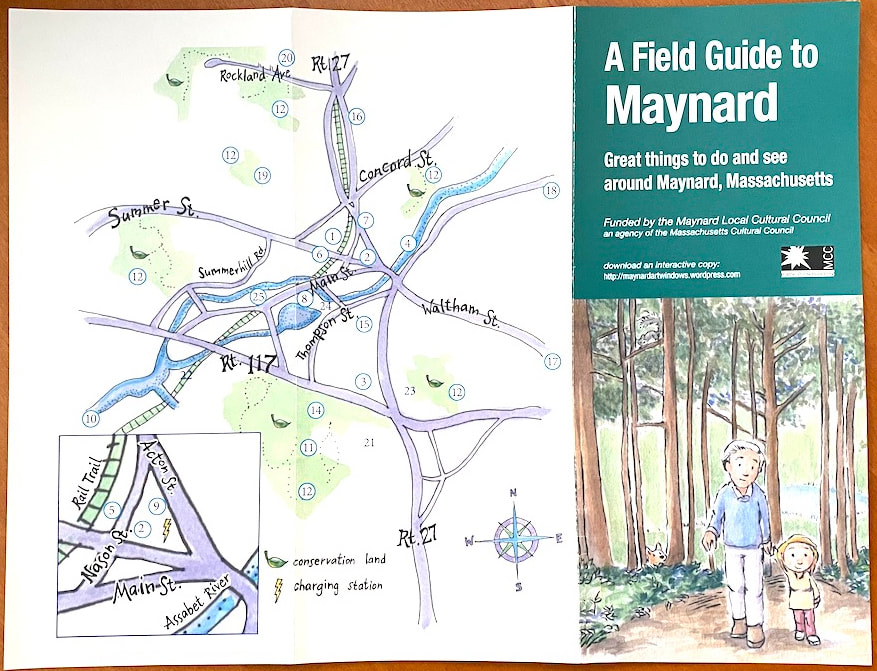
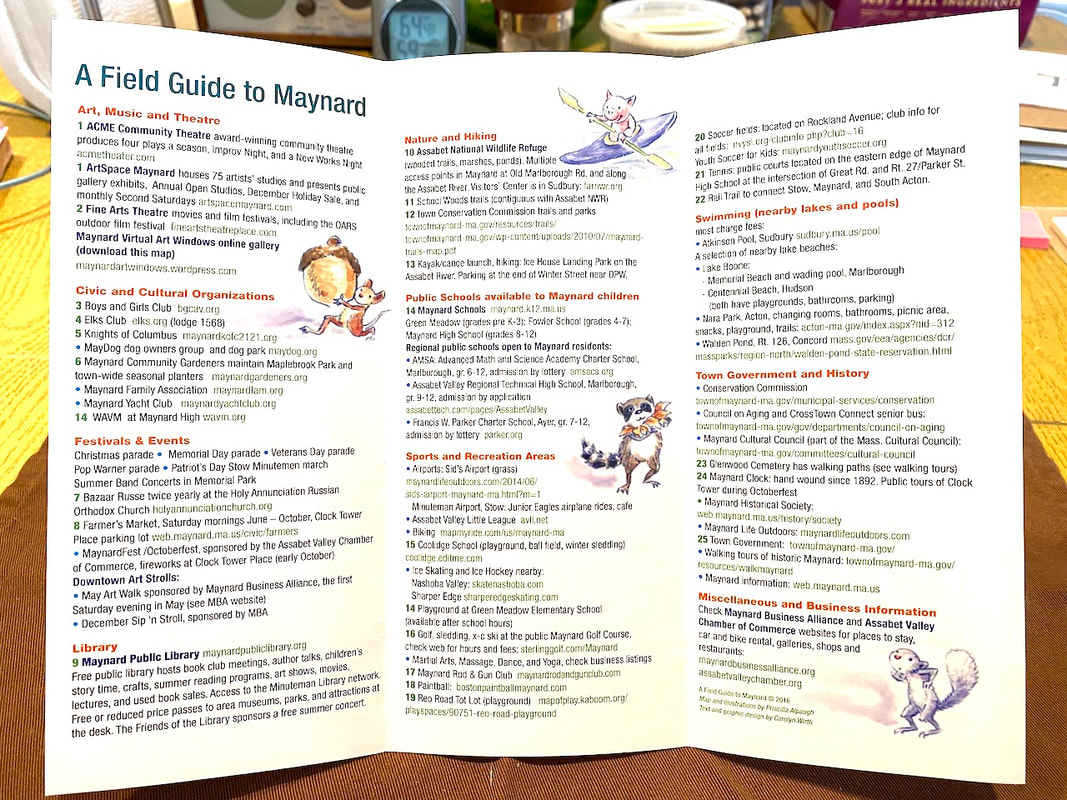

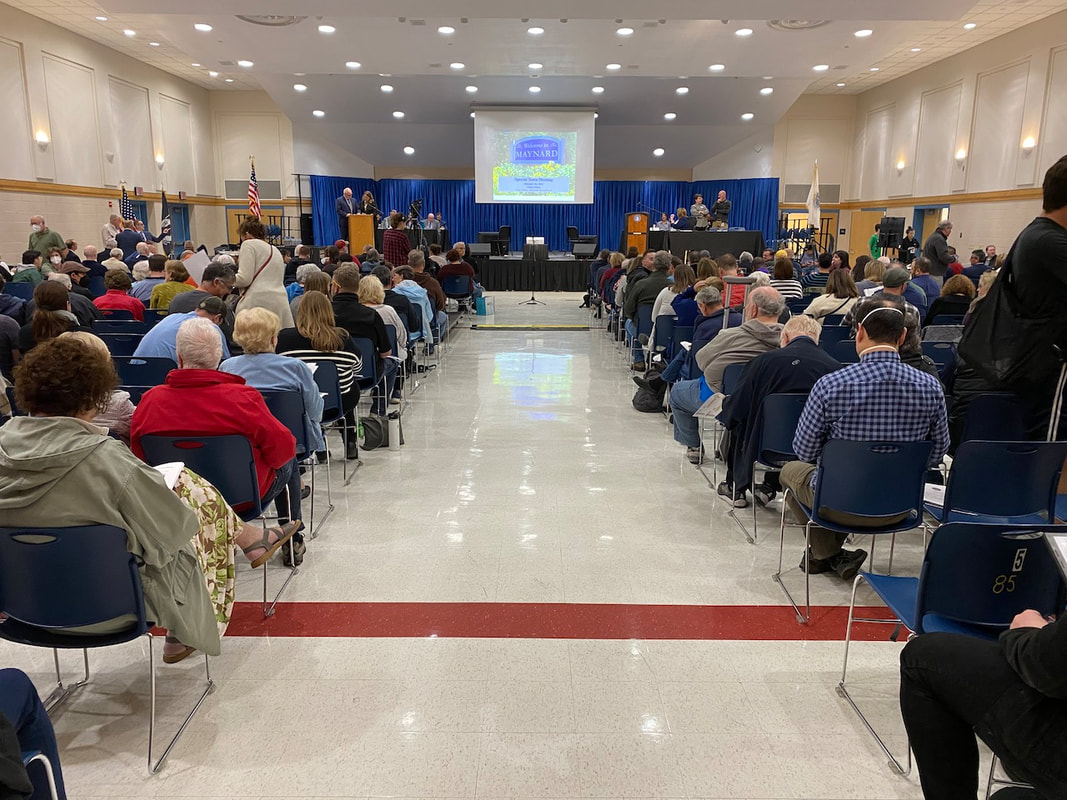




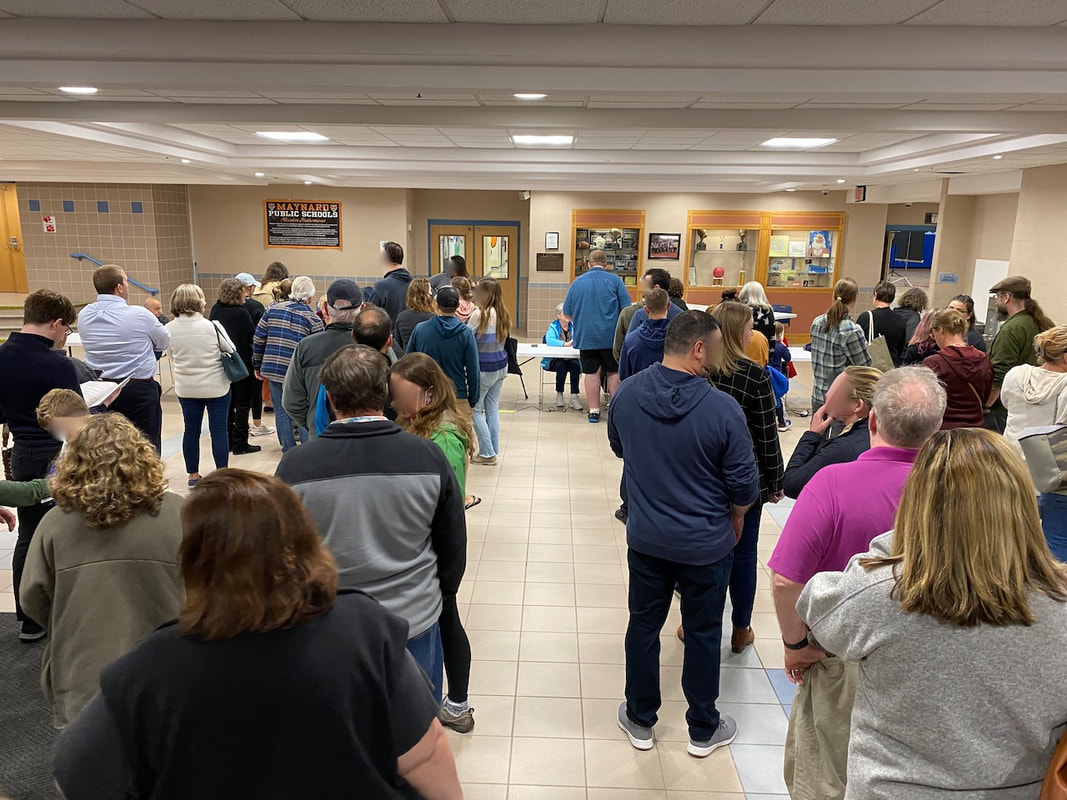
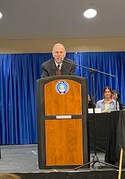
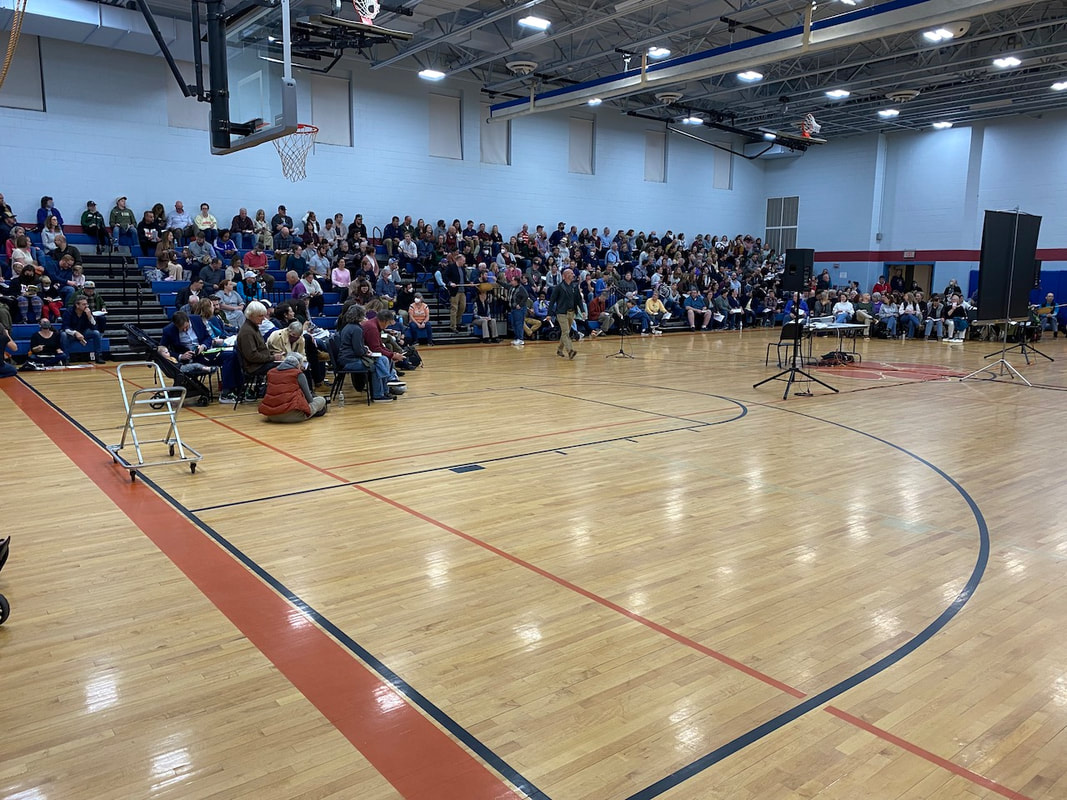
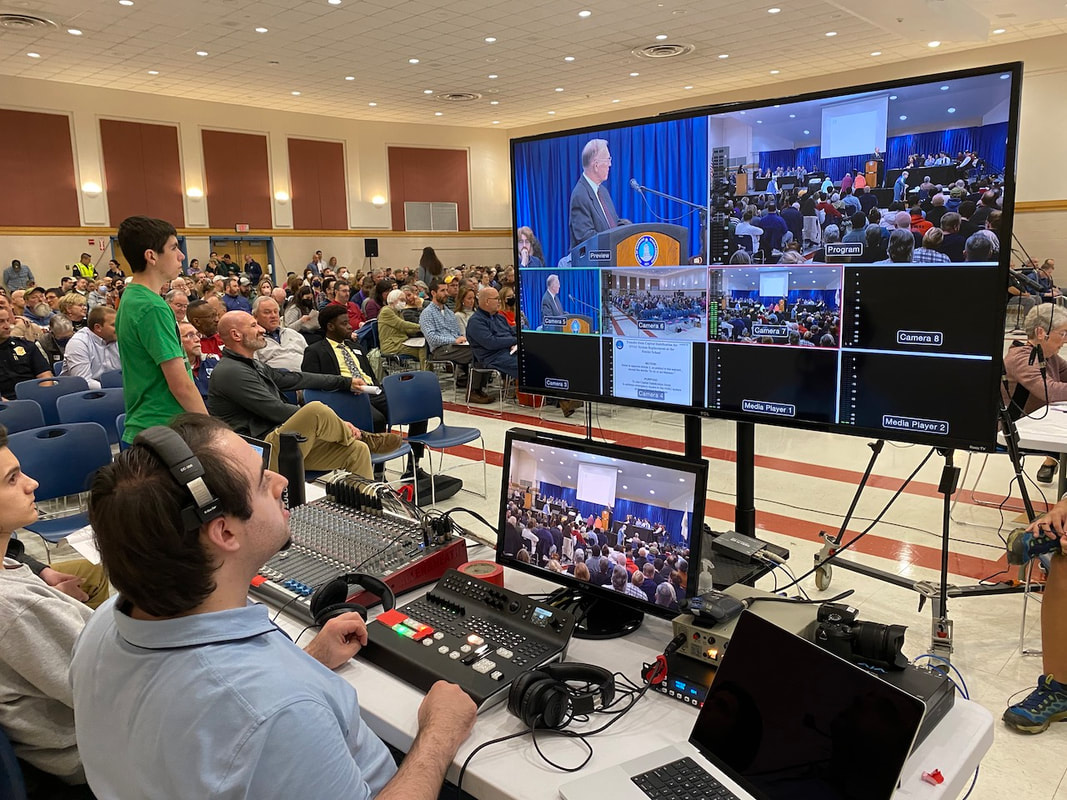
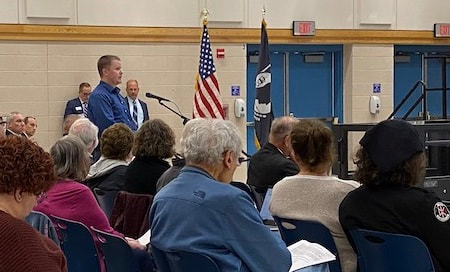
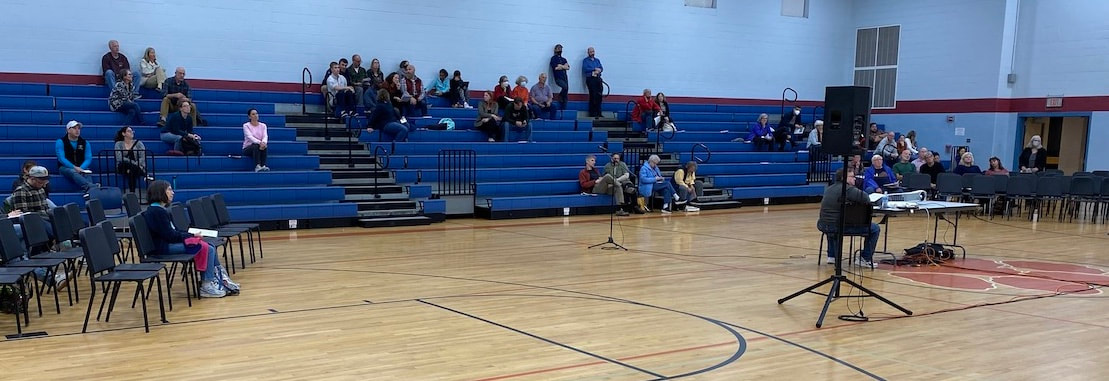
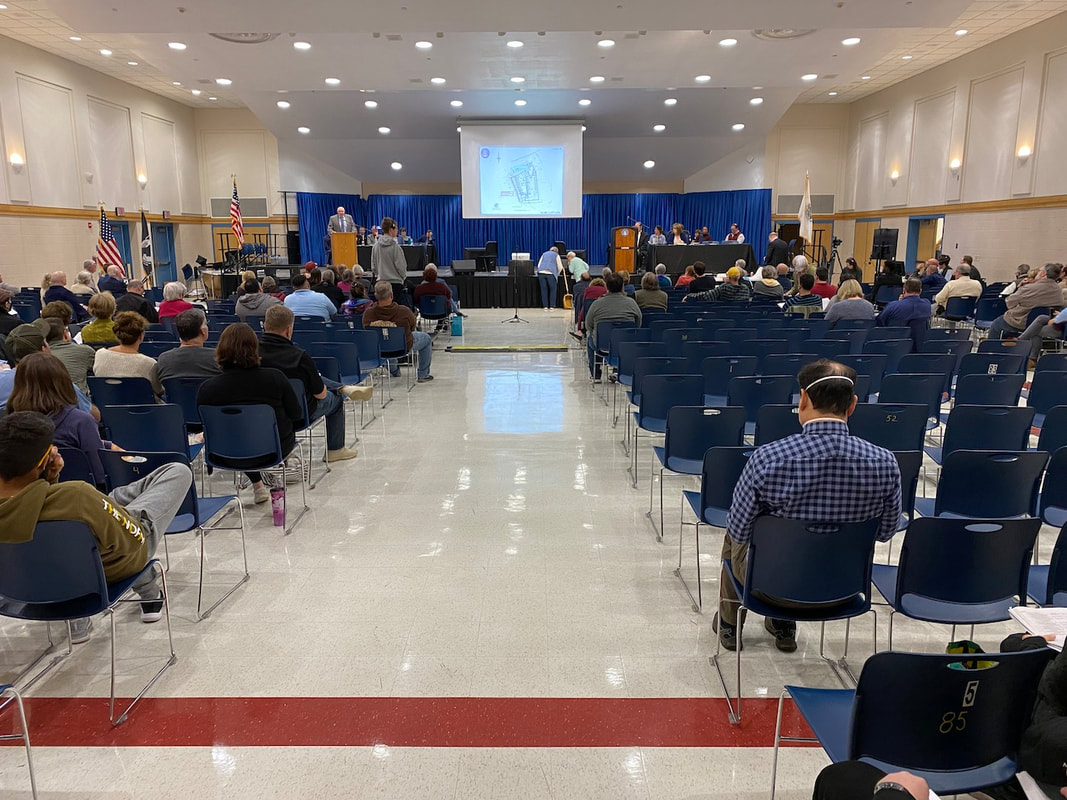
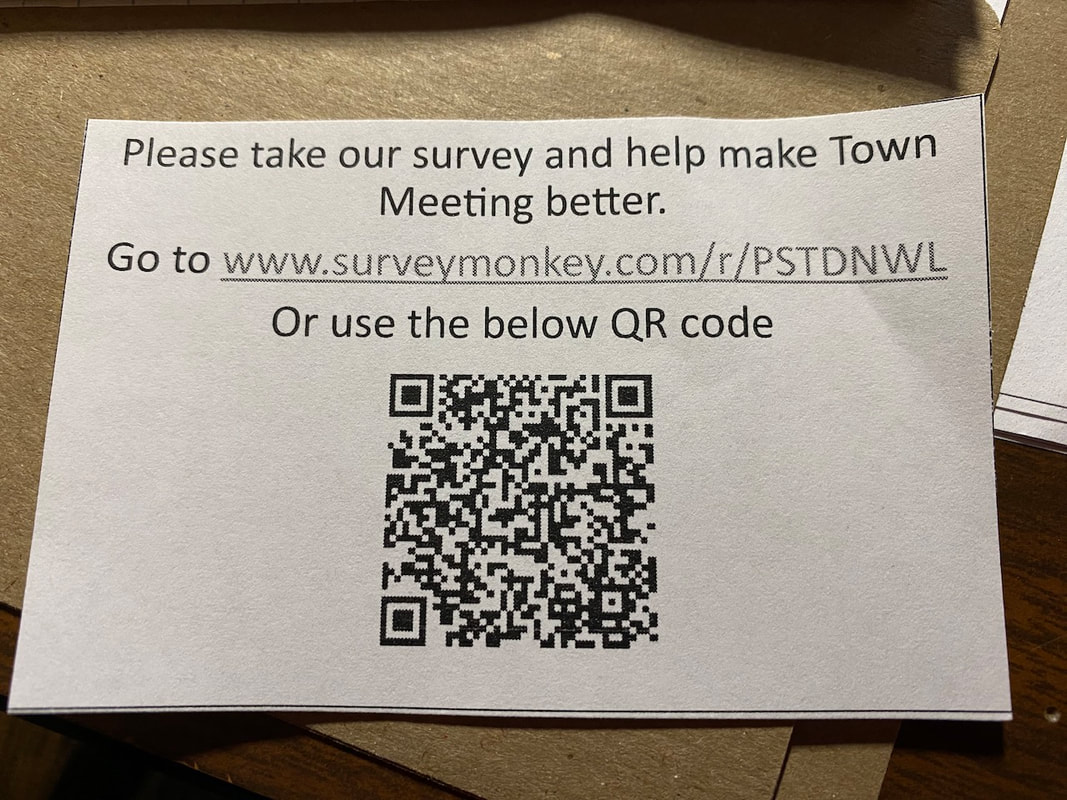
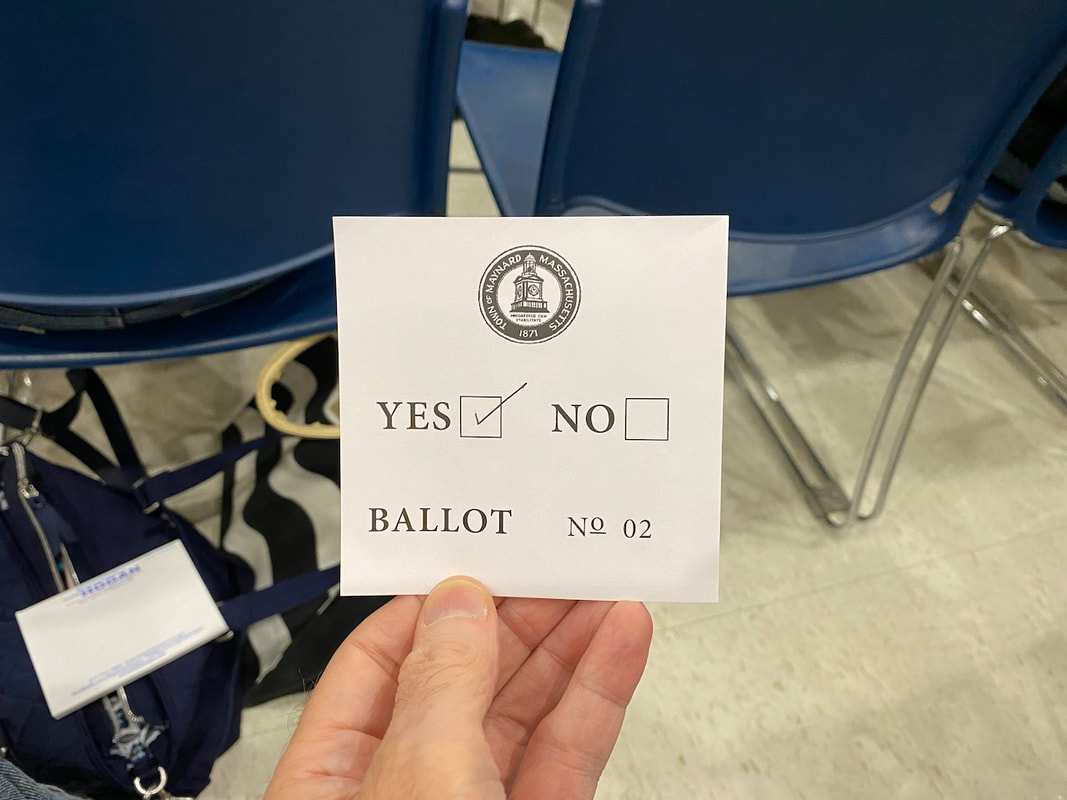
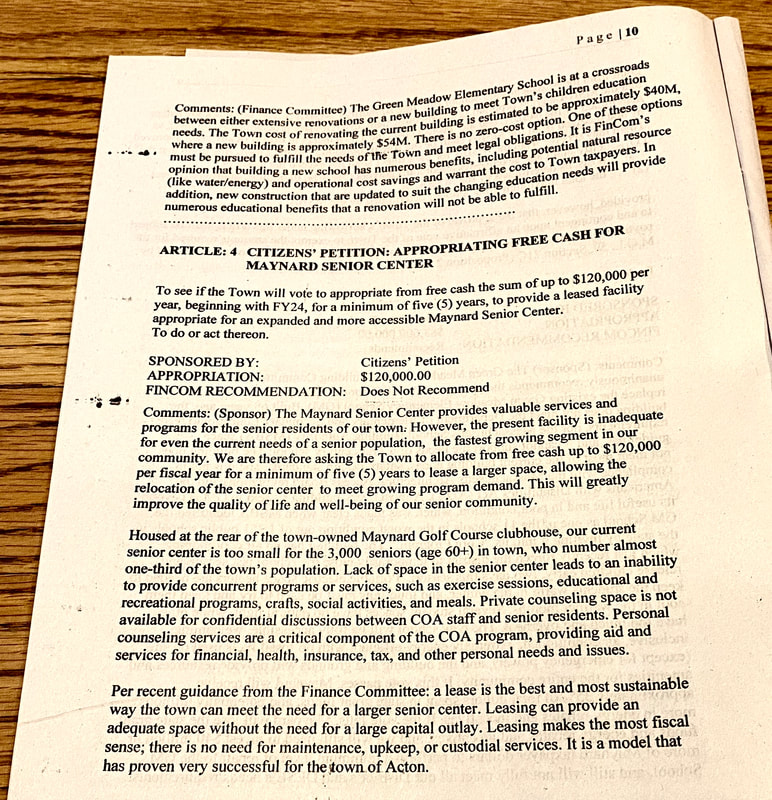

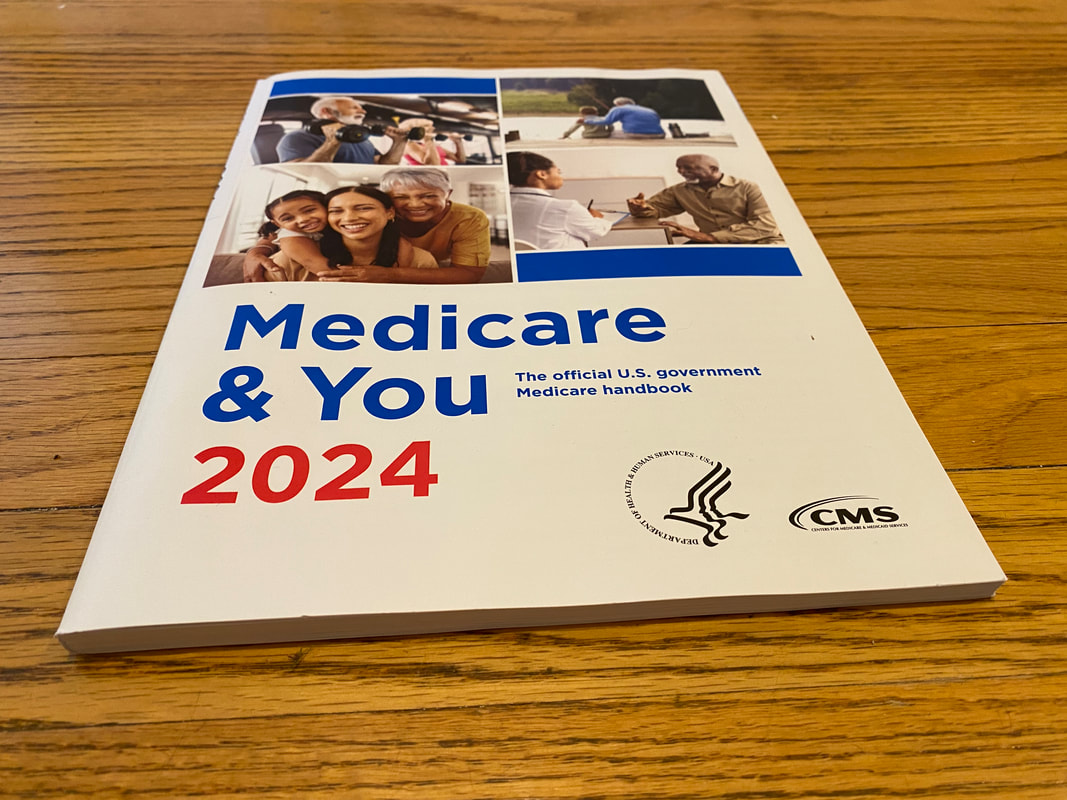

 RSS Feed
RSS Feed